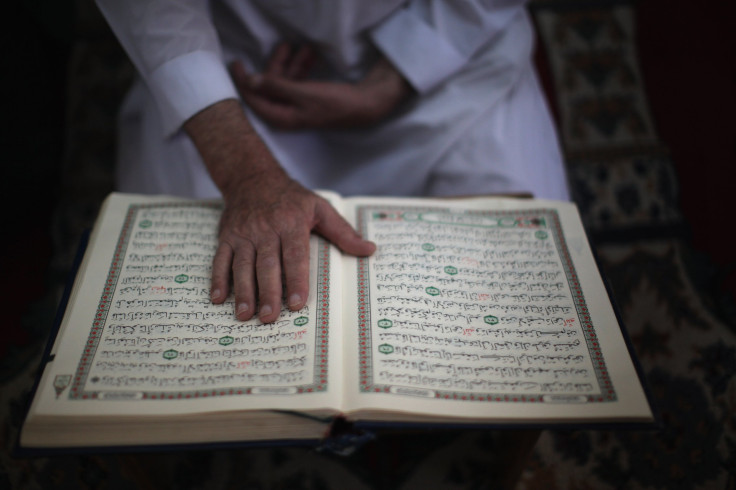What Would Muhammad Do? After Charlie Hebdo Cartoons, Muslim Leaders Discuss How Prophet Would Respond

Muslim leaders across the world asked their followers to act with patience, kindness and understanding in emulation of Prophet Muhammad in the wake of the attacks on the Charlie Hebdo offices in Paris last week. After the latest issue of the satirical magazine published Wednesday featured yet another cartoon lampooning the prophet, some Muslims asked their local imams and religious leaders about potential violence in the wake of the attacks and how to deal with their anger over the disrespectful image. For many, the debate raised the question: "What would Muhammad do?"
“The answer is not to become violent because that’s not what the prophet himself did,” said Malik Khan, a senior member and former president at the Islamic Center of Boston. “He basically dealt with people with respect. ... We say that if you kill one person, you kill all of humanity.”
Two radical gunmen killed 12 people at the offices of the French satirical magazine Charlie Hebdo last week in retribution for the magazine’s many offensive cartoons depicting the Prophet Muhammad. Five others died in murders committed by an associate of the gunmen over the next two days.
The Muslim Council of Britain published a 10-point guideline for the Muslim community this week regarding Charlie Hebdo’s publication of its new Muhammad cartoon. It was signed by more than 50 religious leaders. At the same time, Muslim leaders across the world warned that the publication of Wednesday’s Muhammad cartoon could lead to violence.
“Enduring patience, tolerance, gentleness and mercy as was the character of our beloved Prophet (peace and Blessings be upon him) is the best and immediate way to respond,” the Muslim Council of Britain's guide read. “Repel harm with goodness is the Qur’anic imperative and by which the Prophet Muhammad (Peace be upon him) lived.”
As hurtful as images of Prophet Muhammad may be, they cannot tarnish his image, the guide said, before it asked followers to discuss their anger or frustration with non-Muslim friends so they see how offensive the images are to Muslims. “A lot of people don’t understand the level of respect or reverence we have for the Prophet Muhammad and so they don’t understand why Muslims may get so upset about things like the Charlie Hebdo cartoons,” said Khan.
In some protests against the new cartoon, there was a clear undertone of violence. Copies of Wednesday’s Charlie Hebdo were burned at a march of around 1,500 Muslims in the Philippines. Some shouted and raised their fists as the French magazine was burned. The organizers said that “freedom of expression does not extend to insulting the noble and the greatest prophet of Allah.”
The Quran does not specifically ban images of Allah or Muhammad, but a collection of traditions called the hadith does ban any images of Muhammad, Allah and Judeo-Christian prophets, according to BBC. Part of the reason for that is because idolatry, or the worship of physical idols, is a serious offense in Islam. In some strict interpretations of Sharia, idolatry is punishable by death.
In Pakistan, a cleric named Allama Pir Mohammad Chishti held a funeral this week for the Kouachi brothers, the gunmen who stormed Charlie Hebdo. He called the brothers "heroes of Islam," but it appeared few locals agreed: Only 40 people attended, according to ABC. In Egypt, Dar al-Ifta, an Egyptian Islamic authority, called the cover “an unjustified provocation against the feelings of 1.5 billion Muslims,” while a group of Qatari scholars said it would “stir up hatred,” according to BBC.
The varying reaction underscores the diversity within Islam. The Muslim Council of Britain said last week that while depicting Muhammad is offensive to Muslims, nothing offends Prophet Muhammad more than “a callous act of murder,” like the killings in Paris. “However offended we may be, the ultimate denigration of our faith comes from these murderers who have unjustifiably taken life,” the council said.
© Copyright IBTimes 2025. All rights reserved.




















